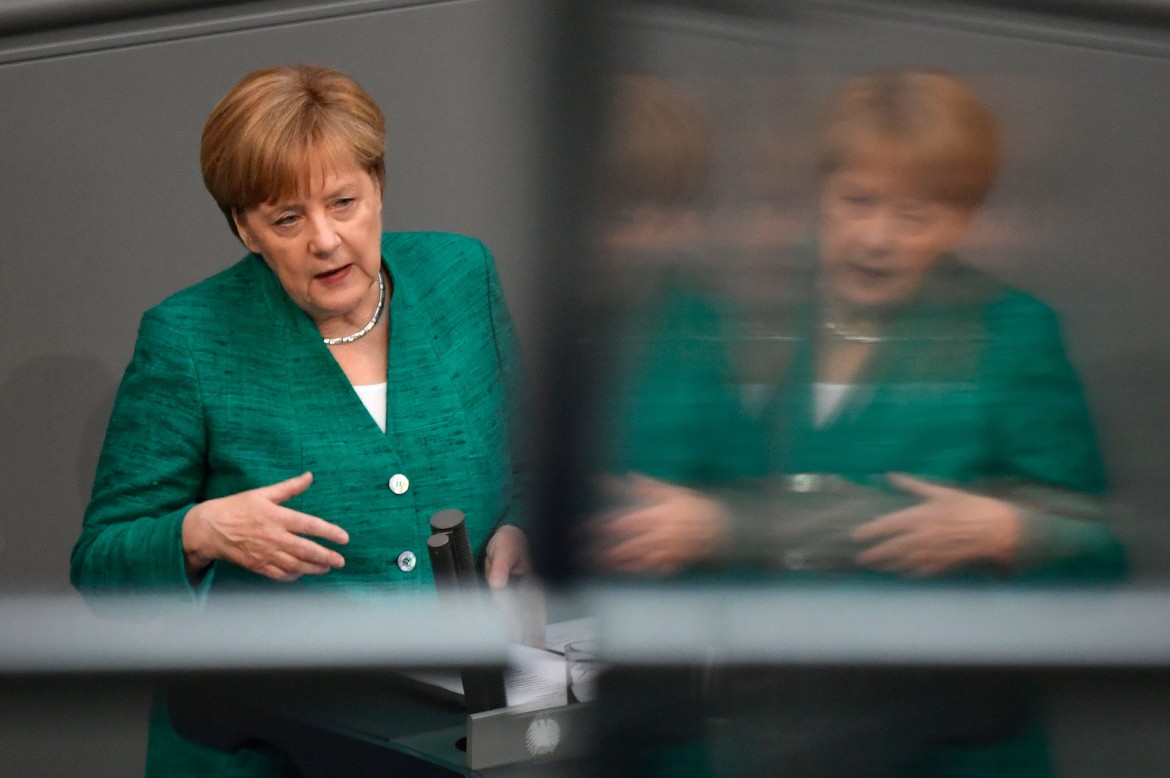Commentary
Merkel’s task: Hold the Union together
Merkel’s efforts to counter the far-right movement are taking place under the worst auspices. There is no longer a left in Europe able to oppose the conservative electorate

Everything is dissolved in the darkness of a non-existent crisis. Brexit, Donald Trump’s trade war, Iran, the sanctions against Russia. The gigantic themes that Europe will have to confront pale in the face of the imaginary emergency of migration despite the modest numbers of arrivals. It’s nothing like the dramatic peak of 2015. But the issue of migrants has burdened every dialogue.
The political balance among EU nations has been discarded in favor of an increasingly radical, brazen and self-confident right wing. It is no coincidence that the undisputed protagonists of the political debate in Europe are the ministers of internal affairs, especially those of Italy, Austria and Germany.
It was in Berlin that Horst Seehofer, former Bavarian governor and current Interior Minister, focused all his attention on the rejection of migrants in order to threaten the historic CDU-CSU alliance and the consequent government crisis. Seehofer is looking at the imminent elections in the Free State of Bavaria, Catholic and conservative, in which the CSU fears a loss of votes in favor of AfD. It is certain that his rhetoric will be appreciated by the entire Christian Democrat right, which wants to put an end to the “social democratic” policies of Angela Merkel.
The chancellor dramatizes the current political situation, affirming that the fate of Europe and the credibility of its values are at stake on the issue of migrants. However, European values do not enjoy great health nowadays. In essence, the EU government is catering to the lowest common denominator in its armoring of the external borders and in its widespread cooperation with the migrants’ countries of origin and transit, agreements that leave little room for reform or human rights.
Forced to play a downward game, the chancellor is trying to avoid the worst-case scenario, not so much focusing on the condition of migrants but aiming to preserve the stability of the Union. If everyone addresses the migrant issue on their own, and perhaps against other European partners, there will be no chance: closed borders, national rules in mutual conflict and the end of cooperation. Merkel is well aware that if this happens on the issue of migrants entering from outside the EU, the same arrangements will soon apply to intra-community migration and then to everything else.
Nationalist movements are using the fear of foreigners they’ve been able to foment to reaffirm national sovereignty against EU partners. But they aren’t considering the geopolitical and economic flipside: that shattering the Union will condemn the individual nation states. Merkel’s efforts to counter the far-right movement are taking place under the worst auspices. There is no longer a left in Europe able to oppose the conservative electorate by attacking inequality, nor a left-wing (that has survived the neoliberal conversion) solid enough to stand up to nationalist radicalization.
The chancellor can still count on Germany’s good economic performance, but any slowdown will be fatal, especially after the return of protectionism beyond the Atlantic and the weakening of the Union. The “German model” has made quite a few mistakes. Its economic catechism has created discontent inside and outside, and in a certain sense has nurtured the distrust and rancour toward the “moochers” who would have liked to take advantage of the German wealth.
It should not be forgotten that it was precisely from this state of mind that Alternative fuer Deutschland took its first steps toward xenophobic and nationalist radicalization. Until now, Merkel has managed to control this tendency. But the price is getting higher and higher and the continuing consensus she has enjoyed for many years creaks fearfully.
Originally published at https://ilmanifesto.it/merkel-solidale-ma-a-porte-chiuse/ on 2018-06-29
